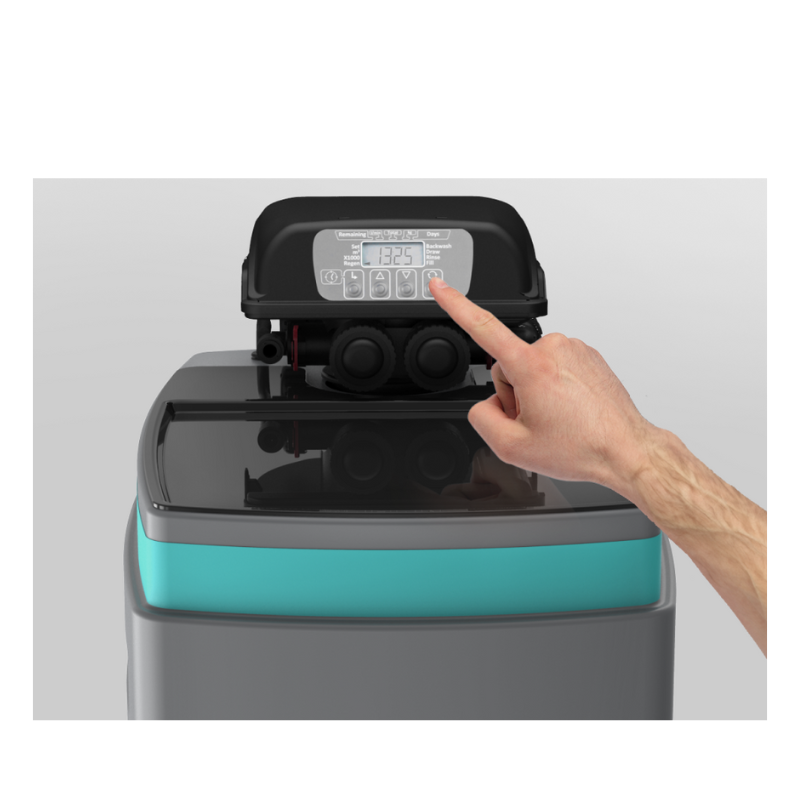
What is the Life Expectancy of a Water Softener?
Ever wondered if your Water Softener will outlive your toaster? On average, they last 10-15 years—but only if you treat them right! Maintenance & performance play a huge role. Want yours to last longer and avoid hard water headaches? Keep reading for expert tips on lifespan, signs of failure, and smart upkeep!
What is the Life Expectancy of a Water Softener?
Average Water Softener Lifespan
Typical Range
Water softeners typically last 10 to 15 years, though some high-quality models can function well for up to 20 years with proper maintenance. Factors such as water hardness, usage, and upkeep significantly impact their lifespan. Understanding how long water softeners last can help homeowners plan for future replacements and avoid unexpected failures.
Factors Affecting Lifespan
Several key factors influence how long a water softener will last:
-
Water Hardness – The harder the water, the more strain it puts on the softener, reducing its lifespan.
-
Water Usage – High household water consumption means the unit regenerates more often, leading to faster wear and tear.
-
Maintenance – Regular upkeep, such as cleaning the brine tank and replenishing salt, extends the softener’s life.
-
Quality of Unit – Well-built, high-quality softeners last longer than cheaper alternatives.
-
Installation – A properly installed unit will function efficiently and last longer than one set up incorrectly.
Factors That Influence Water Softener Longevity
Water Hardness
Hard water is tough on water softeners. The higher the water hardness level, the harder the system has to work. This constant strain can shorten the unit's lifespan, requiring more frequent maintenance and replacements.
Water Usage
The more water a household uses, the more often the softener needs to regenerate. High water usage, especially in large families, can wear out the resin bed and other components faster, reducing its overall lifespan.
Maintenance and Care
Routine water softener maintenance is essential for longevity. Regularly cleaning the brine tank, replenishing salt, and scheduling professional service can prevent premature breakdowns.
Quality of the Unit
Not all water softeners are created equal. High-quality water softeners from reputable brands tend to last longer than cheaper models. Investing in a durable unit upfront can save money on repairs and replacements in the long run.
Proper Installation
Correct water softener installation is crucial. Professional installation ensures the system operates efficiently and prevents potential damage caused by improper setup.
Type of Water Softener
Different types of softeners have varying lifespans:
-
Salt-based softeners: Typically last 10-15 years.
-
Salt-free softeners: Can last 15-20 years, but effectiveness varies based on water hardness levels.
Many of our customers have contacted us for a replacements Tapworks Water Softener after having one for over 10 years and up to 18 years in some cases!
Signs Your Water Softener Might Need Replacing
Reduced Performance
When a water softener starts to fail, you might notice signs of hard water symptoms, such as:
-
Less lather when washing.
-
Spotty dishes after cleaning.
-
Dry skin and hair.
-
Scale build-up in pipes and appliances.
Increased Salt Usage
If you’re using significantly more salt than before, your softener may have issues like a salt bridge or a malfunctioning regeneration cycle.
Frequent Repairs
If your water softener repairs are becoming frequent and costly, it might be time for a replacement. Constant breakdowns often indicate an aging unit that’s near the end of its lifespan.
Age of the Unit
If your softener is over 10-15 years old, it may no longer function efficiently, even with maintenance.
Unusual Noises
Grinding or humming sounds can indicate worn-out components. Noisy water softeners may need repairs or a full replacement.
Leaks or Water Damage
Leaks around the softener or brine tank overflow can lead to serious water damage. If leaks persist despite repairs, replacing the unit may be the best option.
Extending the Life of Your Water Softener
Regular Maintenance
Following a water softener maintenance schedule helps prolong its lifespan. Tasks include brine tank cleaning and resin bed cleaning to ensure the system works efficiently.
Using the Right Salt
Choosing the right water softener salt type is essential. Salt pellets and potassium chloride are preferable over rock salt, which can cause build-up and inefficiencies.
Addressing Problems Promptly
Fixing leaks, salt bridges, and mechanical issues early prevents bigger problems and keeps your softener running smoothly.
Protecting from Extreme Temperatures
Ensure the softener is in a temperature-controlled environment to prevent freezing in winter or overheating in hot conditions.
Cost Considerations: Repair vs. Replace
Evaluating Repair Costs
Frequent repairs can add up quickly. Consider the cost of parts and labour before deciding whether to fix an old softener or invest in a new one.
Comparing with Replacement Costs
A new water softener costs anywhere from £300 to £1,500, plus installation costs. If repairs are nearing this amount, replacing the unit might be more economical.
Long-Term Savings
A new, energy-efficient water softener can save on salt, water, and energy bills, making it a smart long-term investment.
What to Do With an Old Water Softener
Recycling
Consider water softener recycling programs to dispose of your old unit responsibly.
Donation
If your softener is still functional but outdated, donating it to a local charity or community organization can be a great option.
Frequently Asked Questions About Water Softener Lifespan
Q: Can a water softener last 20 years?
A: Yes, but only high-quality units with excellent maintenance reach the 20-year mark.
Q: How do I know if my water softener needs replacing?
A: Look for hard water signs, increased salt usage, low water pressure, or frequent repairs.
Q: Is it worth repairing an old water softener?
A: If the repair costs are high and the unit is over 10 years old, replacement is usually the better option.
By understanding and maintaining your water softener properly, you can enjoy soft, scale-free water for years while avoiding unexpected breakdowns.
💬 Need help choosing your next Softener? Our experts are here 7 days a week — call us on 0121 630 1130 or info@regalflow.co.uk or simply click the green WhatsApp icon.
More Water Softener info our customers have found helpful
- Maintaining Your Water Softener: Tips For Optimal Performance
- When to Refill a Water Softener
- Water Softener Cleaner
- What Water Softener Pellets Do I Need?
-
What Water Softener Salt Should I Use?
- How Often Should You Flush Your Water Softener?
- Can You Shower When Your Water Softener Is Regenerating?
- Will Turning Off Water Damage a Water Softener?
- How Do You Flush Water Softener Resin Out of Pipes?
- What Is the Easiest Way to Clean Resin Out of a Pipe?
- Can You Rinse Resin Down the Drain?
- Water Softener Is Full of Water
- Do Water Softeners Run on Electricity?


Leave a comment